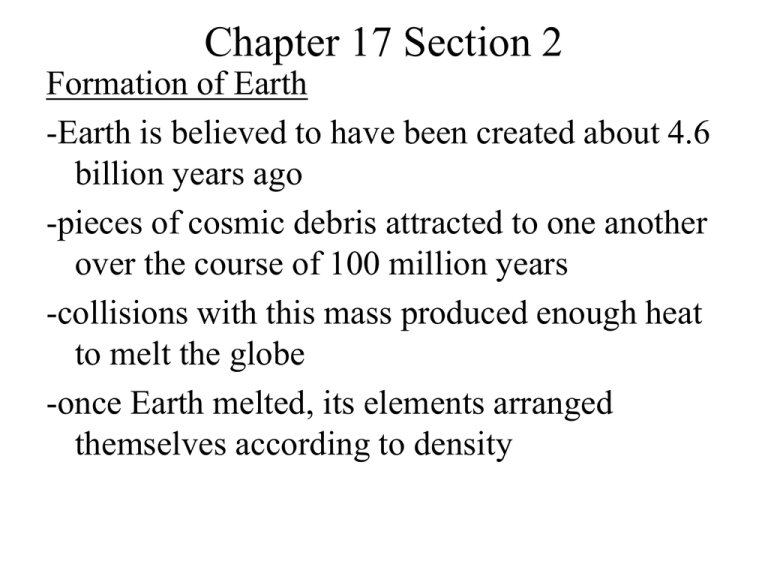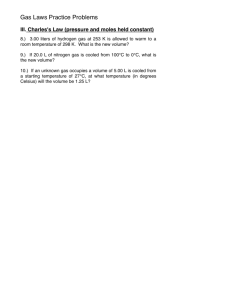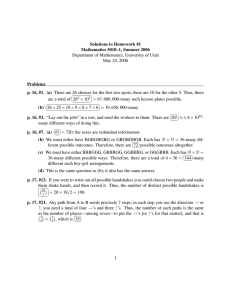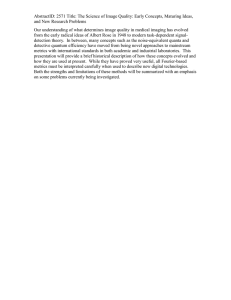Chapter 17 Section 2
advertisement

Chapter 17 Section 2 Formation of Earth -Earth is believed to have been created about 4.6 billion years ago -pieces of cosmic debris attracted to one another over the course of 100 million years -collisions with this mass produced enough heat to melt the globe -once Earth melted, its elements arranged themselves according to density -least dense elements formed first atmosphere -made up of hydrogen cyanide, carbon dioxide, carbon monoxide, nitrogen, hydrogen sulfide and water -no oxygen, so no life existed -about 4 billion years ago elements eventually cooled -volcanic eruptions and meteor showers brought material to form solid rocks -oceans did not exist because it was still very hot -about 3.8 billion years ago Earth’s surface cooled enough for water to remain a liquid -thunderstorms drenched Earth for 1000’s of years to create oceans First Organic Molecules -Stanley Miller and Harold Urey simulated conditions of early Earth in a lab setting -had a mixture of the gases present in sealed tubes and added spark to simulate lightning -result was amino acids formed -these amino acids were what gave rise to life forms Life’s Origin -about 200-300 million years after Earth cooled enough to carry liquid water, bacteria was common How? -proteinoid microspheres were produced -not cells, but have some characteristics of living systems -scientists believe over time they acquired more and more characteristics of living cells Evolution of DNA and RNA -they cannot exist without each other Which came first? -scientists are not sure -it is thought that RNA was the first info storage molecule and created DNA -DNA is the main info molecule today -Questions still exist Free Oxygen microfossils (fossils of microscopic singlecelled prokaryotic organisms) have been found in rocks that are more than 3.5 billion years old -must have evolved in absence of oxygen anaerobes- organisms that can live without oxygen -photosynthetic bacteria evolved next -started churning out oxygen -ozone layer formed -to the first cells oxygen was deadly -many anaerobes died -many new species tat require oxygen (aerobes) evolved -this set the stage for evolution of modern life Origin of Eukaryotes -prokaryotes began evolving internal cell membranes -result was eukaryotic cells endosymbiotic theory- eukaryotic cells formed from a symbiosis among several different prokaryotic organisms Sexual Reproduction and Multicellularity -prokaryotic cells reproduce asexually which produces an identical clone -eukaryotes reproduce sexually which allows for more genetic diversity -evolution can take place at a rapid rate


